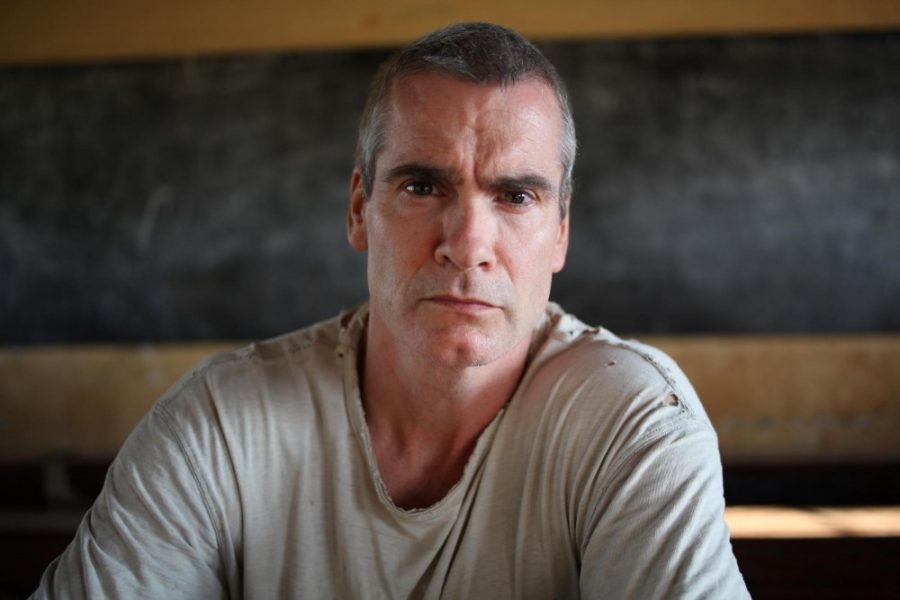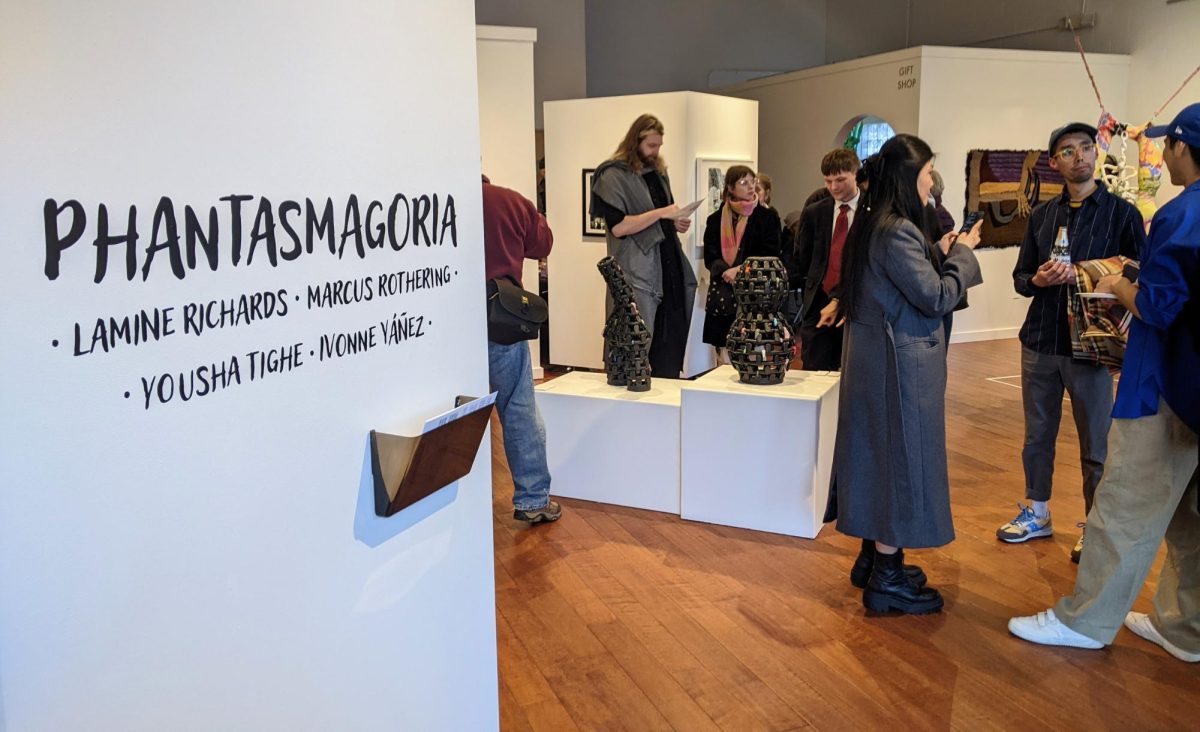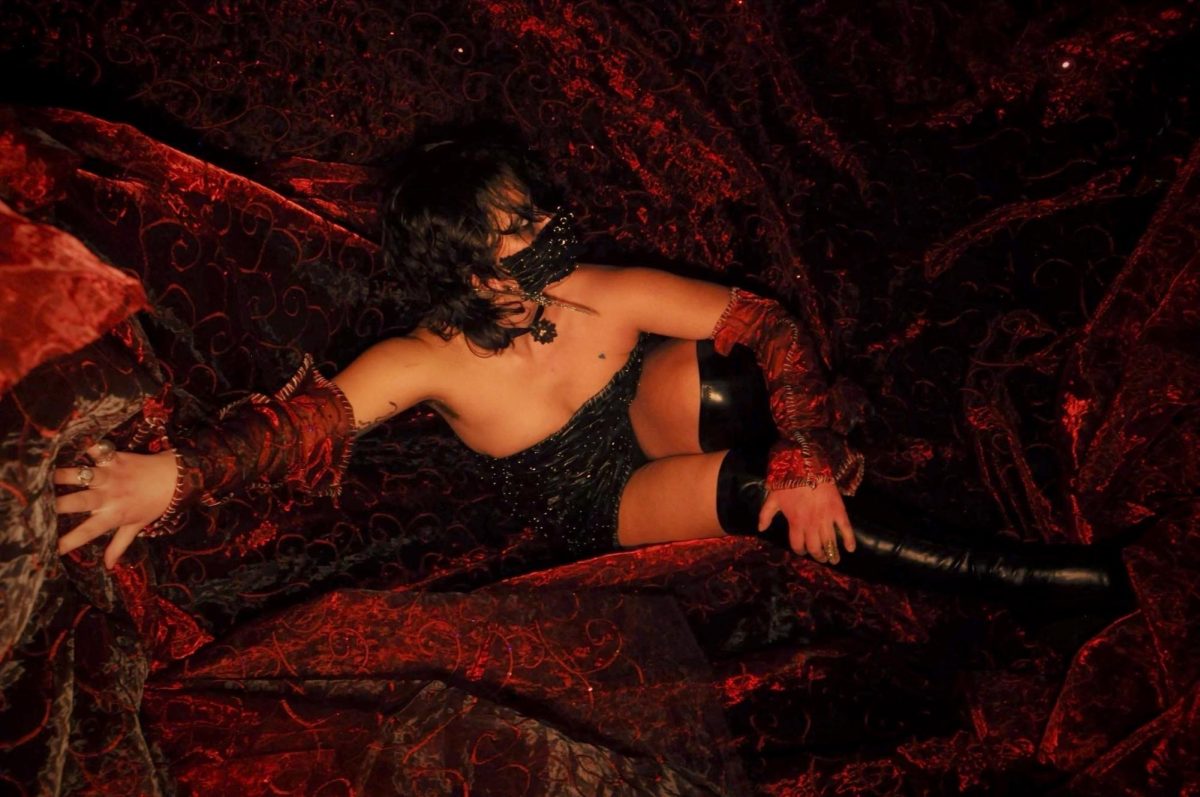Henry Rollins is the iron giant of punk rock. But over the past decade, the former Black Flag front man has become so much more than that, releasing more than two dozen books through his own publishing company 2.13.61.
RollinsâÄô latest book, âÄúOccupants,âÄù isnâÄôt your typical travelogue. Coupling photos with his visceral writing style, âÄúOccupantsâÄù catalogs RollinsâÄô eight-year journey to the less-visited corners of the world that include Bangladesh, Mali and Northern Ireland.
A&E caught up with the punk icon to talk about his book, globalization and what he thinks about Occupy Wall Street.
WhatâÄôd you want to accomplish with your new book âÄúOccupantsâÄù?
It reflects the travel I do which is very agenda oriented. ItâÄôs not very vocation travel; IâÄôm there to learn some stuff and see some things. IâÄôm perhaps trying to close the gap with some people and the rest of the world because a lot of my fellow Americans do not travel as much as Europeans and they might have ideas about other places in the world, but whether they like to or not, theyâÄôre going to be dealing with the rest of the world.
ItâÄôs an anti-war book in a way and IâÄôm not taking it upon myself to try and be some educator because IâÄôm not trying to presume I know some things you donâÄôt know, but I do get out there. I work at it. I go really far and wide. I want people to see people in other parts of the world, basically.
ItâÄôs a photo book, yes, but when you open up the book on the left side youâÄôll see some writing. And the writing was the far more difficult part to finish and the writing, at times, is very, very angry. It goes after globalization, how people are. ItâÄôs reflective upon the differences between the western lifestyle and the lifestyle of other people in the world. There are some pretty angry, cynical writings in the book.
Were there any moments where you couldnâÄôt handle it? Did you ever want to break down?
No. And IâÄôm not a tough guy, IâÄôm not cold-hearted, IâÄôm dispassionate. ItâÄôs just that to remain clear you have to detach yourself a little âÄî just get in there and just show people what it is. And I think people, I think they get that. IâÄôm polite, I ask questions and they see me walking around in their neighborhood. I have no entourage, itâÄôs just me. And I think that resonates with some people.
You risk really offending people. And they might think that youâÄôre just a voyeur and, in many respects, I am. IâÄôm leaving an intense environment and IâÄôm going back to a hotel. IâÄôm not living with them; IâÄôm not living their life. But IâÄôve never been threatened. I always work very quietly, I play with the kids and I think the thing that gets you through is when you show genuine curiosity.
HowâÄôd it change your view of globalization and Western society?
I saw a view of it I never would have seen just living in America or reading Thomas Friedman. It looks different. ItâÄôs really crass. ItâÄôs not a benevolent force in the universe, I donâÄôt think. ItâÄôs not all bad, but itâÄôs not all good, either. It flattens the human experience. Countries are being westernized, the westerns are being easternized and the more and more you travel, the more and more years go by, the more âÄòthe sameâÄô these places get and then weâÄôre losing something.
When you say that I think of the picture of the remote African village clothed in Coca-Cola memorabilia.
You see it all the time. The Pepsi and Coca-Cola logos are the most ubiquitous things I have ever seen in my life. Truly. Besides maybe a cross or the crescent on a mosque. Besides God, you see a whole lot of Coke and Pepsi.
Speaking to more national issues, I donâÄôt know if youâÄôve been following it, but do you think a movement like Occupy Wall Street has the potential to spark real change?
I donâÄôt know; the issues that are being addressed by the protesters âÄî banking regulation, Glass-Steagall Act, corporate tax loopholes, etc. âÄî These are issues that are not new. The fact that it is being protested and being addressed by perhaps thousands of people âĦ I think thatâÄôs a good thing.
You can squarely place the global meltdown on the banks and then we bail them out and they keep the profits? Yes, there are going to be some inflamed people. And a lot of them, not all, thatâÄôs why theyâÄôre there. Some people are there because they go to any protest. Yeah, people got agendas of their own.
But the question, can it affect real change? I donâÄôt know. You know, people from Wall Street they look down from 30 stories up and they look down and they just see some people. Their lives donâÄôt really change. I havenâÄôt really seen anything change in Congress besides politicians artfully [distancing] themselves from this thing because their overlords havenâÄôt given them their opinions.
And winterâÄôs coming. YouâÄôre going to have the hard core people who will stay out and the rest of the people will come back [in the spring]. I was thinking about this last night. If a lot of people go home this winter itâÄôs just going to give them a chance to network, organize and rest up and then itâÄôs going to potentially be fivefold next summer.
Everyone will have some warmth and this could either be what itâÄôs looking like in Rome right now or it could just be what youâÄôre doing this summer. And I was saying to people when I was there the other day: this needs to be shoulder to shoulder from downtown all the way to midtown for Bloomberg to be like, âÄòOK.âÄô Because I think at this point, the mayor is going to just try to kick these kids out.














